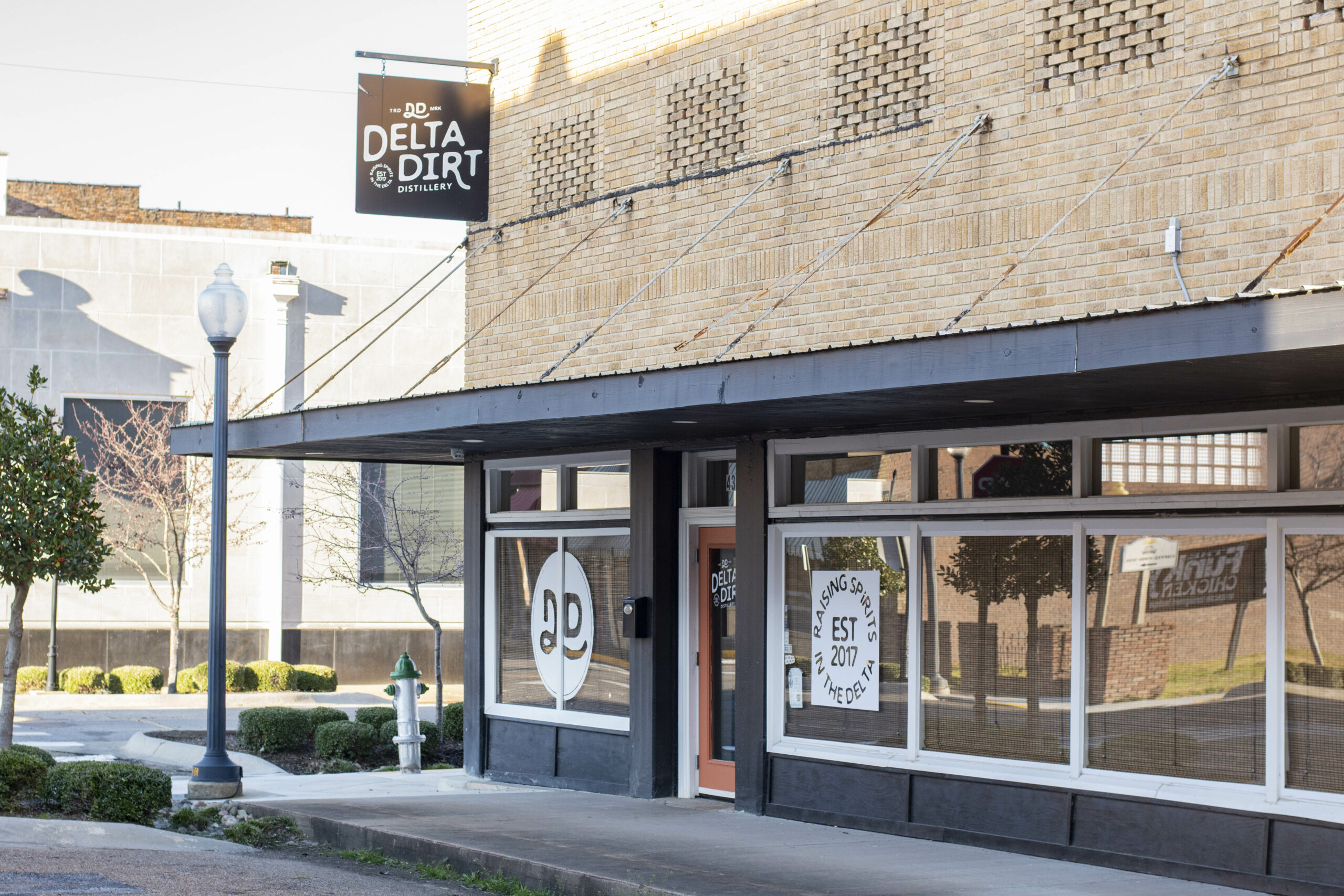A slight loosening in recent years of the once-draconian Arkansas liquor laws has transformed many cities across the state, bringing life back to struggling urban areas and abandoned buildings.
Conservative Arkansas, which didn’t allow restaurants to serve mixed drinks until 1969 and still prohibits the retail sale of alcohol on Sundays, began to license brewpubs in the 1990s, allow commercial sales of craft beers in 2000, and license distilleries in 2010.
The embrace of alcohol has literally changed Arkansas’s landscape, as breweries, brewpubs and restaurants fill real estate, most often in communities’ downtowns. The changes, initiated by the state to increase tax revenues, have been a boon to communities economically, culturally and gastronomically and have brought new life to once-empty storefronts.
Take the abandoned storefront on one of the most legendary streets in Arkansas history: In 2017, blues fans in Helena-West Helena for the annual King Biscuit Blues Festival were abuzz at the sight of “distillery coming soon” signs in the windows of a vacant building at once-bustling 430 Cherry Street Area farmer Harvey Williams had got the idea to use the sweet potatoes grown on his family’s land to make vodka, giving rise to Delta Dirt Distillery. The pandemic slowed progress at the business a bit, but Delta Dirt’s first batch was ready at the end of 2020, and the distillery opened for business in April 2021.
This farm-to-bar distillery is one of just a handful of Black-owned distilleries in North America. Delta Dirt Distillery is unique in another way: It’s a too-rare sign of life on a street once lined with good businesses, in a town that has seen its share of economic hardship in recent decades, in a county that ranks among the poorest in the U.S.
Williams said he originally planned to open the distillery on the family farm, some 20 miles outside of town, but opted instead to locate in the 7,000-square-foot facility on Cherry Street, a location that had been for sale for a long time. The building had been “fine meats market” at one time, he said, a grocery store, a pawn shop and beauty supply store. The Williams family gutted it, removing false ceilings and walls “to get a clean canvas,” and did most of the work themselves. Steel beams were added along both sides of walls, and damage from a water main leak that had gone undetected for years was repaired.
“I grew up knowing Cherry Street as a place we would shop and go to town. But it wasn’t in my mind when we put [the distillery] there that we would be a part of revitalization,” Williams said. “We turned out to be a destination. I didn’t, in my own lack of wisdom, have that thought.”
Now, Delta Dirt’s tasting room hosts not just individual consumers, but school, college and FFA group tours. “It gives me a lot of joy to explain what we do,” Williams said. “The business model is built upon the product going out the back door and have it to go beyond Helena. But the tasting room is so people can see … what happens at a distillery. Most people who come in and see a future for Cherry Street don’t live here. I’m encouraged by those conversations.
“I’m hoping I can get some other businesses to come down here. We haven’t had the imagination to think about what these buildings can be.” However, the Williamses are planning to open a brick-oven pizza parlor next door to the distillery.
Last year, Delta Dirt sold more than 1,000 cases of its unique vodka and a gin infused with botanicals. Next year, look for Delta Dirt bourbon, also made with Delta-grown sweet potatoes.
——————
It’s been a long road for Arkansas to get to the manufacture of alcoholic beverages. In 1983, the Arkansas Brewing Co. opened in Little Rock, operated by then-Fordyce Mayor William Lyon, but the brewery ran afoul of state laws and closed in 1986.
Enter Vino’s, known today as “Little Rock’s original brewpub.” When it started serving food in the 1909 Muswick building at Seventh and Chester streets in 1990 the brewery was still a distant dream. When it did begin brewing, in 1993, the brewing equipment was installed on the floor above the restaurant. That meant employees had to lug empty kegs through the kitchen and up a narrow flight of stairs, and take full kegs down the same treacherous path, David Jukes, a former Vino’s manager, told this reporter.
On April 24, 1993, Vino’s owner Henry Lee declared to the Little Rock Free Press “The drought is finally over!” The brewpub sold all 170 gallons of its three different beers that opening day. Brewers Mark Crossley and Preston Buchner had figured they’d brewed enough for two weeks: That they’d underestimated demand was an understatement. Impatient for the place to open, “Patrons were lined up, pounding on the doors and windows, before noon,” Stephen Steed reported in the Free Press.
Another hurdle remained: to-go beer. Again, as pretty much the only game in town, Vino’s paved the way, with Lee testifying in favor of the move before the legislature. Almost unnoticed in the already earth-shattering to-go beer legislation was an even more ground-breaking proviso: that it be allowed seven days a week.
“Sunday beer — that seemed like a miracle!” Jukes said. “That was a game-changer.” The market was thirsty for take-home brew, and on Sundays demand was even heavier. To meet demand, Vino’s expanded to the building immediately east of its location on Seventh, moving in brewing equipment, expanding restaurant storage and adding seats and a patio. One of the first economic success stories of modernized alcoholic beverage laws was under way. Today, as breweries and brewpubs have come and gone over the decades around the state, Vino’s remains an anchor on Seventh Street.
A similar story was happening a year earlier in Fort Smith, at Weidman’s Old Fort Brewpub. It opened in 1992; its state permit was approved in 1995.
——————
As the 21st century dawned, the time was right for the state’s first commercial brewery in modern times: Diamond Bear Brewing Co. The brewery began life in 2000 at a gorgeous former car dealership at 323 Cross Street in Little Rock. It gained the first toehold in the nascent state market for local-brew package sales using a bottling crew fortified with volunteers. “They just needed extra physical hands, like to yank a bottle out,” Bitsy Spencer LaFayette, a frequent volunteer on Diamond Bear’s early production lines, told the promotional publication Brewed in Arkansas in 2019. “It was exciting,” she said of assisting at what was then the state’s only commercial brewery. “It was all so new!”
Diamond Bear has since moved to a greatly expanded location across the Arkansas River, at 600 N. Broadway in Argenta, but its original Cross Street location has remained a spot for entrepreneurship in the food and beverage field, housing an artisan cheese shop, and now Dempsey Bakery, specializing in gluten-free products.
Stone’s Throw Brewing in Little Rock was one of the nano-breweries able to follow in the wake of comparative behemoth Diamond Bear. “Initially we were only looking for a space to brew,” co-founder Ian Beard explained. “As the idea of including a taproom evolved, downtown made more sense.” The 1,900-square-foot location, built in the 1940s at 402 E. Ninth Street, is in the MacArthur Park Historic District, which is overseen by a city commission. Many early ideas didn’t work with the city codes designed to protect the historic character of the district and had to be scrapped: “Things like our signage, patio and back door all had to go through an approval process,” Beard said.
Stone’s Throw’s “MacPark” location looks prescient now with the transformation of the former Arkansas Arts Center into the new Arkansas Museum of Fine Arts a block east on Ninth Street and new residential construction in the area. But it’s also been a mixed bag: “When we moved in, the neighborhood was still mostly historic buildings, many of which were homes or flats converted to inexpensive apartments,” Beard said. “When we started, most of our staff lived within a few blocks and walked to work. Most moved out of the neighborhood as rents went up.”
——————
Rapp’s Barren Brewing Co., 601 Baker Street in Mountain Home, is another example of how breweries can bring new life to communities while honoring their histories. Kyle Swallow said he and co-owners Russell Tucker and Chris Gordon chose the company’s historic and now gorgeously restored location because, “We wanted to be part of the community. The last decade or so, our downtown has been pretty vacant.” So, the group “bought the oldest building on the square.”
History is kind of Rapp’s thing. The brewery’s name derives from the original name of the Baxter County settlement, Rapp’s Barren, coined by founder Henry Rapp in 1810 to reflect the town’s location in a clearing. The settlement was incorporated in 1888 as Mountain Home.
The brewery opened in September 2017 at a different location; it moved June 2021 to the Baker Building, a two-story building erected in 1892.
The Baxter County town was the first community in Arkansas to take advantage of the 2021 state law permitting “entertainment districts,” which allow for the carrying of open containers of alcohol within a designated area, Swallow said. There were initial objections to the establishment of an entertainment district, but Swallow said they were overcome: “It’s not Bourbon Street by any means.” Too, he said, “It’s definitely brought life back to the square. Now there’s a wine bar, a burrito restaurant, a coffee shop, a whiskey bar, all within the past couple of years, and an ice cream shop coming.”
——————
The state went from about a dozen breweries in the early 2010s to more than 30 by 2016. Distillers have expanded, too, producing cider (Black Apple in Springdale), mead (Arkansas Meadery in Alexander) and sake (Origami Sake in Hot Springs). So, raise a glass: That growth is still bubbling over and is benefiting the people, buildings and tax coffers of towns and cities. Cheers to that!



